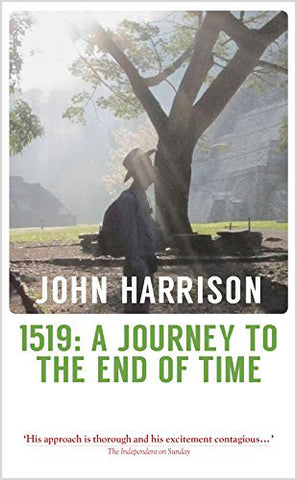When Hernán Cortés met the Mayans, Aztecs and other cultures of the gulf coast of Mexico in 1519, it was the first extended contact between the peoples of continental America and Europe. The Spanish found cities larger and better run than any in Europe, and pyramids greater than Egypt's. The Aztecs believed time was running down and they lived in the final age of the world. Many Spaniards believed Christ's millennium was approaching, and God's revelation of Americas had opened the final act: the conversion of the remote races of the earth. After the Day of Judgement God's experiment with man was over. The laboratory, the physical world, would be destroyed. Both cultures were acting out the last days.
Halfway through researching this book John Harrison had a scan which told him he would not live to write it; he was seeing out his own days.
The Aztec people were concerned with the transitory nature of worldly things; some of their rulers were revered as much for their philosophical poetry as their conquests. John Harrison follows Cortés's route along the Mexican coast and across country to modern Mexico City, home of the Aztecs. A journey within journeys to the end of time, the book becomes a meditation on time, on mortality and self, from a modern master of travel writing.
‘His approach is thorough and his excitement contagious…’ The Independent on Sunday.

